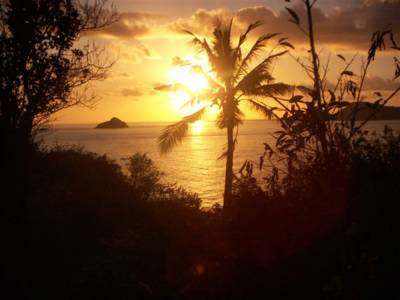Syrinx Ensemble - Brussels, 13/10/2004

I didn't get lost. I found a nearby parking spot right away. Things only got weirder when I entered the venue and realised that I had been here before, at least a year ago if not more, for a salsa party. In fact, the salsa stories in the post about dancing were taken from that night. Proving Greg Sandow right, the crowd was mostly by far older than the musicians. Needless to say, I felt a bit out of place, but there were a few other younger people there: Bram Van Camp, whose "Hidden Facts" was to be played and some friends of his.
Syrinx (flute, English horn, clarinet, French horn (a lot bigger than I imagined) and bassoon) played one piece each by 6 Belgian composers, adding a pianist on the first and last, and one solo piano. Lots of pieces, so none was too long. I was held in a state of semi-amusement throughout by the bassoonist: being the only man in the middle of a semi-circle of women, his posture, jovial manner and the sound of his instrument conspired to make it seem as if he was telling fart jokes all night long. But there were serious matters to attend to as well.
The concert opened with Arthur Meulemans's "Aubade." The MC at one point used the term "light music," which I found a bit odd, as a lot of what falls under that umbrella (jazz, for example) is actually "heavier" than this 1934 Edvard Grieg "At Dawn"-like piece, which was as light and refreshing as morning dew. We then scrolled ahead a few decades to 1962 for Elias Gistelinck's "Suite for Wind Quintet op. 4." I don't know the stylistic terms, but this one consisted of 4 short movements and lots of fragmentary, sharply punctuated and quizzical statements, which sometimes (and happily) blended into a mushier collective that sounded a bit like chamber free jazz.
The third composition was Boudewijn Buckinx's "De Tijd op een Kier zetten" (1990). I don't know what kier means, so I won't bother translating the rest (apparently the title is funny). This one was more melodic, proceeded at a deliberate pace and went from initial slight melancholy to quiet optimism at the end. There were some cool bassoon/French horn hookups as the latter prolonged the former's notes. The last piece before intermission was Wilfried Westerlinck's "Landschappen I" from 1977 which intended to map an interior landscape. A highlight was a flute line that seemed to endlessly fold back upon itself and served as the transition point between frenetic, staccato lines and investigations of the murkier, stiller waters formed by the English horn sailing over the acompaniment's small interval dissonance.
INTERMISSION
Bram's piece was introduced by an "interview" conducted by the MC. He's a very good talker. "Hidden Facts" (2004) was split up into 3 barely-separated movements (the traditional allegro-adagio-allegro) and drew on a language similar to that of the more modern and thorny pieces played. Highlights to me were the exciting end of the first allegro, powered from below, and the English horn melody, accompanied only by flute and clarinet, to beautiful-yet-disturbed effect.
Brecht Degryse came on to play the piano piece, Marcel De Jonghe's "Introspection V." It's programme was to evoke first the way the world should be (harmonious), the way it is (harsh) and the poetic world of the composer. A bit twee, perhaps, but it was okay, with the third part as obviously the heart of the composition.
Finally came "Rhapsody op. 70" (1922) by Joseph Jongen, who is, I suppose, the most famous of all 7 composers. By far the longest piece, it started with old-time "falling into a dream" movie music: sweet long-note melodies accompanied by billowing piano arpeggios. A highlight was when the piano fueled the group with a steady, tango-ish rhythmic figure.
Not a lot of emotional description in the above: while I like some of the sounds, I don't really connect with these musics. My recent classical concert-going has yielded some questions: do orchestras really need so many percussionists who don't really do that much? Why not get a drummer and save some money? Did what I imagine to be the general unavailability of page-turners for pianists influence the direction of jazz composition?
|